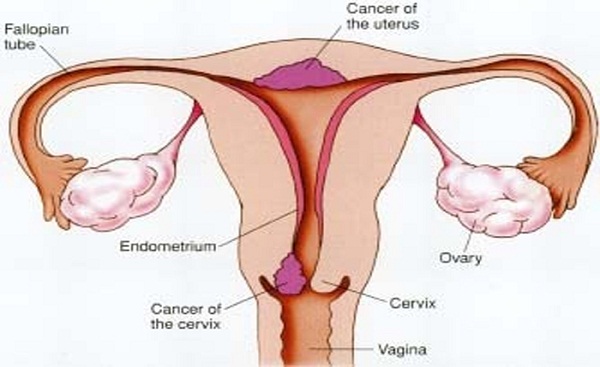Cervical cancer- a cancer of the cervix is one of the high rising cancers in Indian women. Believe it or not- it is the one of the preventable cancers if we are cautious enough! So here I’m to throw a little light about this cancer and also how it could be prevented.
What is Cervix?
Cervix literally means neck. Anatomically cervix is the neck of the uterus. In simpler terms it can be called the mouth or entrance of the uterus. So any infection or inflammation of the cervix means it is going to spread to the uterus too.
What is Cervical Cancer?
It is the cancerous growth in the cervix as its name implies. But it does have stages before it being called as cancer or carcinoma of cervix.
What are the stages of Cervical Cancer?
Carcinoma in Situ: Where the cell study has shown growth of abnormal cells which may become cancerous in the future.
Stage 1- where the cancer is bound to the cervix only.
Stage 2- where cancer has spread from the cervix and has involved the upper one third of the vagina and lower part of the uterus.
Stage 3- where the cancer has involved the lower third of the vagina and has involved the pelvic floor and sometimes the kidney.
Stage 4- where the cancer has flourished all over the body involving the liver, rectum and bladder.
Why are the stages important to know?
Staging of any type of cancer helps to decide the type of treatment options and to know the prognosis i.e., the outcome of the treatment.
When should I be alert?
-
Abnormal Vaginal Bleeding:
This may happen in between your periods, or you may experience heavier and longer periods (ie. longer than what you generally have every month), bleeding either after intercourse and/or after menopause.
-
Discharge from the Vagina:
This may be white, pink, brown or mixed with blood and often foul smelling.
The above said are the general symptoms concerned with cervical cancer. At times certain people don’t have any of the above symptoms.
The other vague symptoms which are common for any type of cancer include:
- Abnormal Weight Loss
- Loss of Appetite
- Low Back Pain
- Lower Abdominal Pain Often Excruciating
- Leg Cramps
- Swelling Of Legs- mostly one side
- Urine or feces leaking through the vagina
What should I do if I have these symptoms?
First and foremost thing, don’t panic. Next, you reach for your gynecologist at the earliest and she will arrange to get per vaginal examination done. She may order you to get a Pap smear test as well.
What is a Pap smear?
A pap smear is basic investigative procedure where a smear of the cervical secretions is taken and is examined under the microscope to study cells.
A pap smear is so simple that it can be done as an OPD procedure and it is painless.
What happens after a Pap smear is done?
Pap smear is not a confirmatory investigative procedure. It may show some false negative results. So if your gynecologist is not satisfied with the Pap smear she may order for a biopsy of the cervix. The biopsy is generally done in a operation theatrical set up, i.e. under sterile conditions. Here in the biopsy, a very small piece of the lip of the cervix is cut and is sent for microscopic studies. The biopsy of the cervix is almost a confirmatory test whether is cancer or not.
Other studies or investigations are done to know how far the cancer has spread and these include:
- X-ray chest
- Pelvic CT scan
- Cystoscopy -to examine the bladder
- Pelvic MRI
- IVP- Intravenous Pyelogram to study the kidneys
Treatment:
Treatment depends upon the stage of the disease.
The treatment options for cancer in situ or early cancer includes:
- LEEP- Loop Electrosurgical Excision Procedure where the cancerous tissue is alone removed without disturbing the cervix.
- Laser treatment-where the cancerous tissue is burnt away
- Cryotherapy- where the cancerous cells are destroyed by freezing them.
Advanced cancer cervix needs surgery, wherein the uterus is removed along with some of the surrounding tissues and lymph nodes, which is also known as Radical Hysterectomy. According to the spread of the disease, there may be need for radiotherapy and/or chemotherapy combined with the surgery.
After reading all these are you panicking? Cheer up! As already said, cervical cancer is one of the preventable and curable cancers, if detected early.
What should I do to prevent it?
First and foremost thing is to go for regular Pap smear examination.
As Human Papilloma Virus (HPV) is found out to be one of the risk factors for developing cervical cancer go for a HPV vaccine.
Avoid having multiple sex partners as HPV is transmitted sexually.






